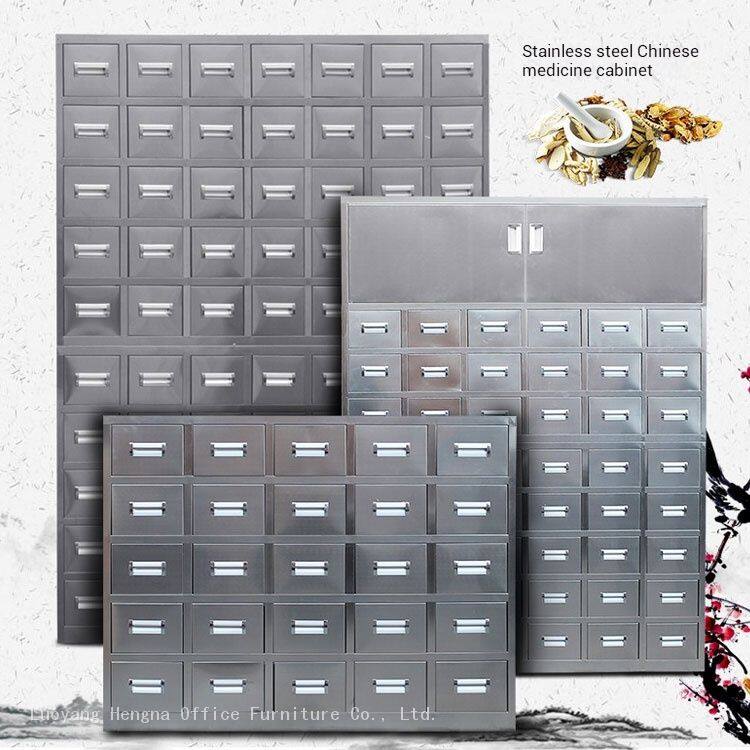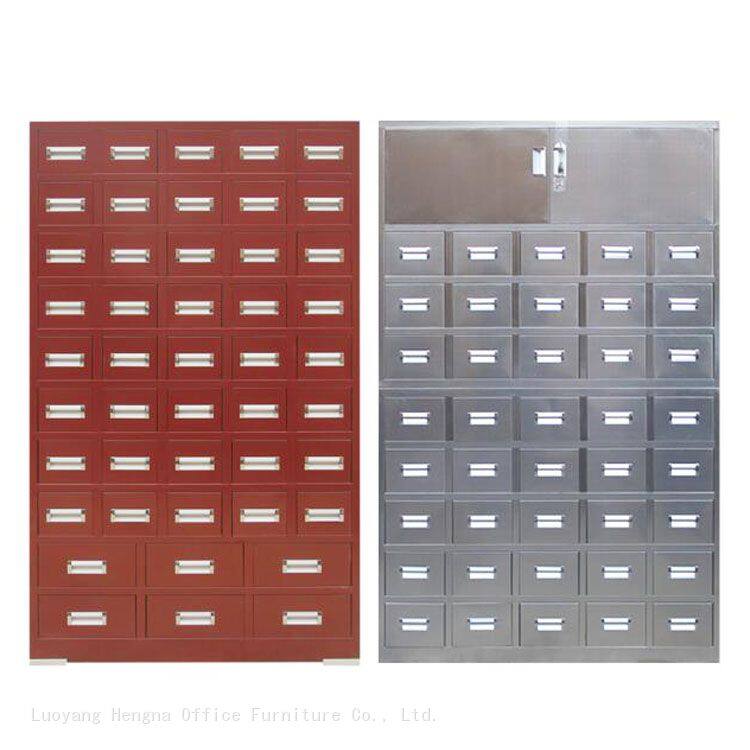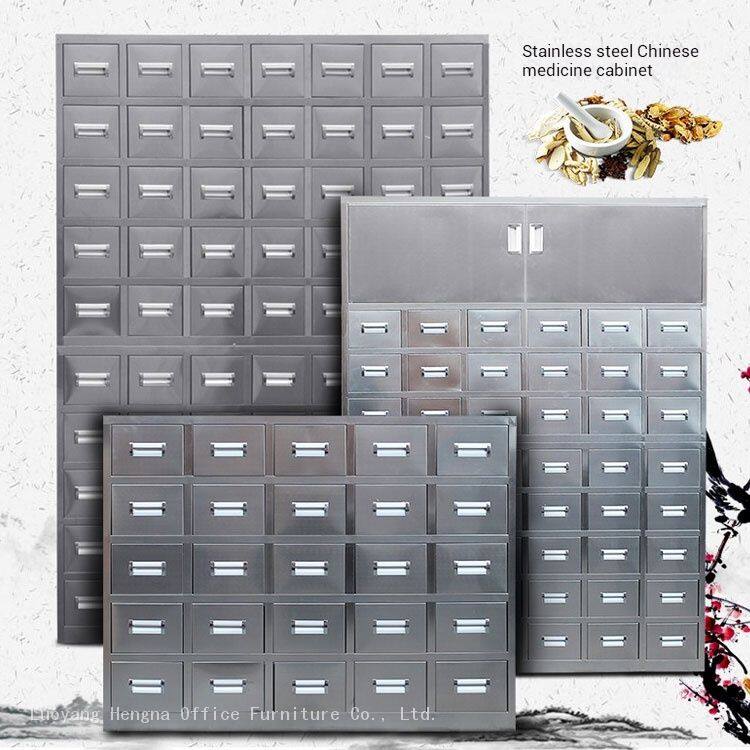-
 Sarah
Hi there! Welcome to my shop. Let me know if you have any questions.
Sarah
Hi there! Welcome to my shop. Let me know if you have any questions.
Your message has exceeded the limit.

How to Choose a Wholesale Supplier for Stainless Steel Herb Storage Cabinets
2025-10-25 17:41:35
In the world of Traditional Chinese Medicine (TCM) and herbal practices, stainless steel herb storage cabinets are essential investments for preserving the potency, safety, and organization of medicinal herbs. For clinics, pharmacies, and wellness centers, sourcing these cabinets from a reliable wholesale supplier is critical to ensuring quality, cost-efficiency, and long-term value. But with countless suppliers in the market, how do you identify the right partner? This guide breaks down the key factors to consider when selecting a wholesale supplier for stainless steel herb storage cabinets, helping you make an informed decision that aligns with your business needs.
1. Prioritize Material Quality and Durability
The foundation of a superior herb storage cabinet lies in its material. Stainless steel is the industry standard for its unmatched durability, corrosion resistance, and hygiene. When evaluating suppliers, focus on:
Key Material Specifications
Grade of Stainless Steel: Opt for suppliers using 304 or 316 stainless steel. Grade 304 offers excellent corrosion resistance for most environments, while 316 (with added molybdenum) is ideal for humid or coastal areas.
Thickness and Finish: Cabinets with thicker steel (e.g., 1.0–1.5mm) resist dents and warping. Look for brushed or polished finishes that are easy to clean and maintain.
Certifications: Request material test reports (e.g., ASTM A240) to verify compliance with international standards.
Example: The 1.2m stainless steel cabinet in the reference image uses 304-grade steel with a brushed finish, ensuring longevity and resistance to rust—critical for herb storage.

2. Evaluate Design and Functionality
Herb storage cabinets must balance aesthetics with practicality. A good supplier should offer customizable designs tailored to your workflow:
Essential Design Features
| Feature | Importance | Example |
|---|---|---|
| Drawer Configuration | Organizes herbs efficiently | 48-drawer system (as shown in reference) for 144 herb varieties |
| Moisture/Rodent Proofing | Preserves herb quality | Sealed edges and non-porous surfaces to prevent contamination |
| Ergonomics | Enhances usability | Smooth-gliding drawers, ergonomic handles, and stable base to prevent tipping |
| Size Options | Fits diverse spaces | Compact (1.2m wide) or larger models for high-volume storage |
Pro Tip: Ask for 3D renderings or physical samples to assess drawer depth, weight capacity, and ease of access before bulk ordering.
3. Verify Manufacturing Standards and Compliance
Reliable suppliers adhere to strict quality control processes. Look for:
Compliance Checklist
ISO Certifications: ISO 9001 (quality management) and ISO 14001 (environmental management) indicate robust processes.
Safety Standards: CE marking (Europe), UL certification (North America), or local regulatory approvals.
Warranty Terms: A minimum 3–5 year warranty demonstrates confidence in product longevity.
Red Flag: Suppliers unwilling to share compliance documents or offering vague warranties may cut corners on quality.
4. Compare Pricing and Value
While cost is a factor, prioritize total value over the lowest price:
Pricing Considerations
Bulk Discounts: Reputable suppliers offer tiered pricing (e.g., 10% off for 10+ units).
Hidden Costs: Clarify if shipping, installation, or customs fees are included.
Long-Term ROI: Durable cabinets (like the reference model with “long service life”) reduce replacement costs.
Case Study: A TCM clinic saved 20% over 5 years by investing in 316-grade cabinets, avoiding rust-related herb spoilage.
5. Assess Reputation and Reliability
A supplier’s track record speaks volumes:
Vetting Methods
Customer Reviews: Check Google, Trustpilot, or industry forums for feedback on product quality and delivery times.
Client Portfolio: Suppliers serving established TCM brands (e.g., herbal pharmacies, hospitals) are more trustworthy.
Communication: Test responsiveness—delays in quoting or answering queries signal poor service.
Example: The reference cabinet’s supplier includes “moisture-proof, rodent-proof” features, reflecting attention to detail—a hallmark of reputable manufacturers.

6. Sustainability and Ethical Practices
Modern businesses prioritize eco-conscious partners:
Green Indicators
Recyclable Materials: Stainless steel is 100% recyclable—suppliers should highlight this.
Ethical Sourcing: Fair labor practices and conflict-free mineral sourcing.
Waste Reduction: Minimal packaging or use of recycled materials.
7. After-Sales Support and Logistics
Post-purchase service is crucial:
Support Essentials
Installation Assistance: On-site guidance for complex setups.
Spare Parts Availability: Quick replacement of damaged components (e.g., drawer slides).
Return Policy: Clear terms for defective products.
Conclusion: Partner for Long-Term Success
Choosing a wholesale supplier for stainless steel herb storage cabinets requires balancing quality, functionality, and reliability. Prioritize suppliers who:
Use high-grade stainless steel (304/316),
Offer customizable, ergonomic designs,
Provide transparent compliance documentation,
Demonstrate strong industry reputation.
The 1.2m cabinet in the reference image—with its 48-drawer system, moisture-proofing, and durable construction—exemplifies the quality to seek. By following these guidelines, you’ll secure cabinets that protect your herbs, streamline operations, and deliver lasting value.
Final Tip: Request a small sample order before committing to bulk purchases. Test the cabinet’s fit, finish, and functionality—it’s the best way to validate a supplier’s claims.
Tags: Stainless Steel Herb Storage Cabinets, Wholesale Supplier for Stainless Steel Herb Storage

